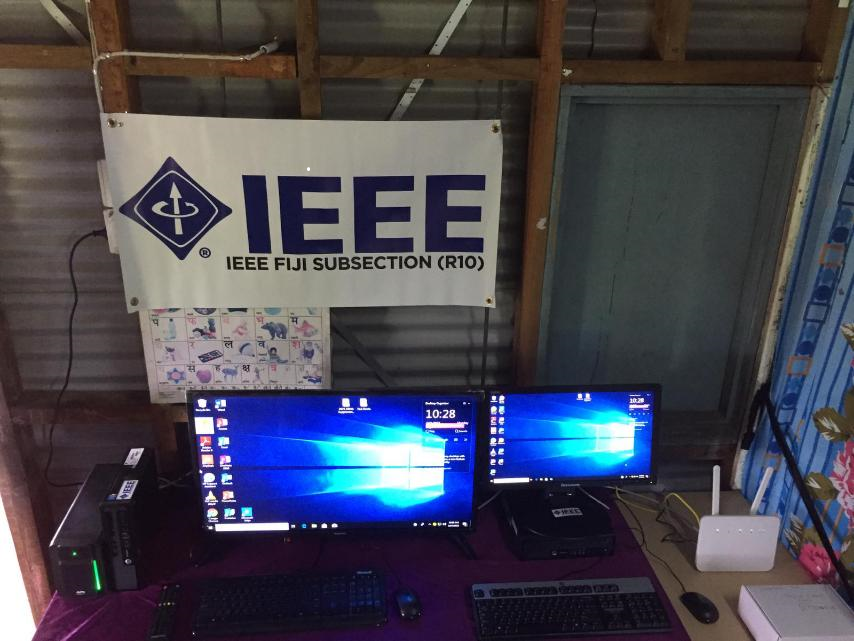Related News

The University of the South Pacific’s (USP) School of Information Technology, Engineering, Mathematics, and Physics (STEMP) completed a project that ensured students in rural or remote communities could participate in digital learning.
The project, ‘Educational Resource Centre for Remotely Located School Students in Fiji: Free to All’, aimed to bridge and bring educational resources to every child’s doorstep in rural areas of Fiji.
Under this project, a standalone server with remote access facility was set up in two schools, Vunikavikaloa Arya School, Rakiraki and Bureivanua District School, Nayavu.
The team comprised of Associate Professor in Electrical and Electronics (EE) Engineering, Dr Utkal Mehta, Teaching Assistant in EE Engineering Mr Ravneel Prasad, USP Alumni Mr Harsh Sagar and final year engineering students Mr Bhavish Gulabdas and Mr Krishneel Sharma.
Dr Mehta said that by using this facility, the team hoped to improve access to free materials from the Ministry of Education (MoE) website for all levels of students who would be able to connect to the world wirelessly.
“The Wireless Routers connect to the central gateway creating a private network. The whole system is set up including smart TV as per convenience for students, so, they will have the flexibility of viewing the resources at any time without the need of internet,” Dr Mehta added.
He mentioned the team also hoped to benefit from a certain level of technological exposure to the rural students, which could be helpful for them.
It was also noticed that during a visit to one of the villages, Bureivanua village had not connected to the main power grid for continuous electricity supply.
The headteacher of Bureivanua District School acknowledged the help provided by USP and the Institute of Electrical and Electronics Engineers (IEEE) and raised a concern that the school depended only on a small generator to power the one classroom.
Dr Mehta said the generator was very noisy, inadequate, and costly.
“In the near future, STEMP would like to propose a smart energy harvesting solution for providing a noise-free and economical power solution to the school,” he added.
The project was funded by the IEEE R10 grant, namely IEEE Humanitarian Activities Committee (HAC). The IEEE Special Interest Group on Humanitarian Technology (SIGHT) provides funding to IEEE professional members who prepare and implement humanitarian technology and sustainable development projects in their local communities. These projects must address one or more of the United Nations Sustainable Development Goals (SDGs).